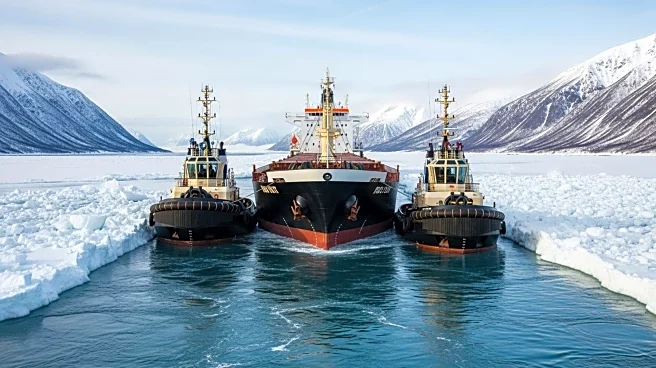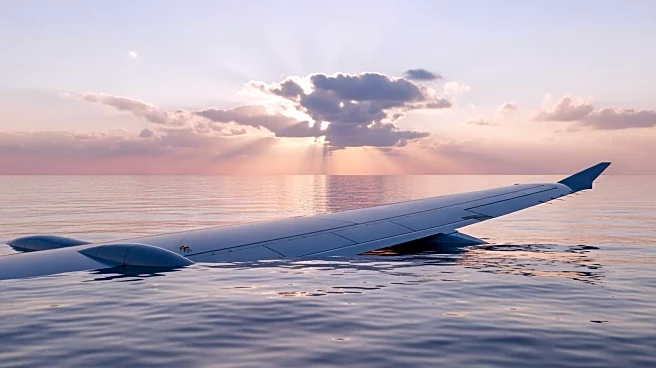What's Happening?
Two vessels have arrived to assist the grounded freighter Thamesborg in the Northwest Passage, a remote area north of mainland Canada. The Thamesborg, traveling from China to Quebec, grounded in Franklin Strait near Prince of Wales Island. Despite hull damage, the vessel has not caused any pollution, and the crew remains safe. The icebreaking buoy tender Sir Wilfred Laurier was the first to respond, followed by the oceangoing tug Beverly M I and the ice-class reefer ship Silver Copenhagen. The Silver Copenhagen is equipped to lighten the Thamesborg's cargo, potentially enabling a refloat. This vessel has been noted for transporting Russian seafood to Norway, a trade scrutinized due to geopolitical tensions.
Why It's Important?
The grounding of the Thamesborg highlights the risks associated with Arctic shipping routes, which are increasingly used for trade between Asia and North America's east coast. The Northwest Passage presents challenges such as hazardous shoals, inadequate hydrographic charting, and seasonal ice, which can lead to deviations from planned routes and increase the risk of accidents. The successful assistance of the Thamesborg underscores the importance of having capable vessels and international cooperation in maritime rescue operations. Additionally, the involvement of Silver Copenhagen in Russian seafood trade reflects ongoing geopolitical complexities affecting maritime commerce.
What's Next?
Efforts will continue to refloat the Thamesborg by lightening its cargo, a task for which the Silver Copenhagen is well-suited. The operation's success will depend on favorable ice conditions and precise execution. The incident may prompt further examination of Arctic shipping routes and the need for improved navigation aids and emergency response capabilities. Stakeholders in maritime trade and environmental protection will likely monitor developments closely, considering the strategic importance of the Arctic region.
Beyond the Headlines
The grounding incident may lead to discussions on the environmental and geopolitical implications of increased Arctic shipping. As climate change opens new routes, the balance between economic opportunities and environmental risks becomes crucial. The scrutiny of Russian maritime trade, as seen with Silver Copenhagen, reflects broader geopolitical tensions that could influence future shipping policies and international relations.









